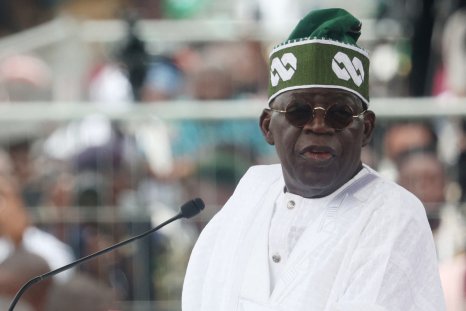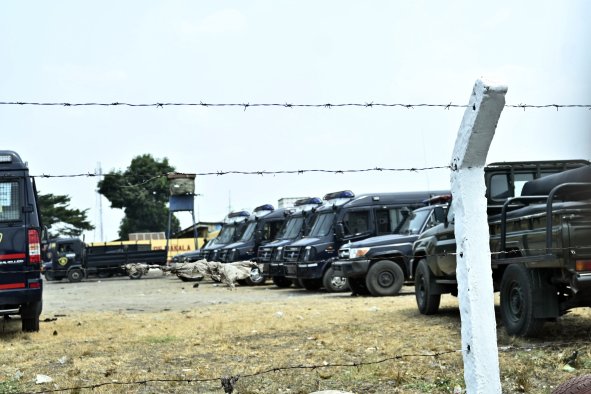Cambodia's Defense Ministry confirmed on Wednesday that its navy will receive two warships as gifts from China.
The announcement by the country's Defense Ministry has led to speculation that Beijing may be planning to maintain and expand its military assets on the Gulf of Thailand in the long-term.
The vessels, expected to be delivered as early as next year, will be Type 56 corvettes—smaller coastal patrol ships that have been docked for months at the Ream Naval Base, which is undergoing major expansion funded by Beijing.
Ministry spokesperson Maly Socheata confirmed the donation, saying that it comes at Cambodia's request to bolster its naval capabilities.
However, she did not comment on reports that China may also hand over the newly upgraded facilities at the Ream base, including an expanded pier that can host larger vessels than Cambodia's current fleet. She added that the final phase of construction is nearing completion.
The expansion of the strategically located Ream Naval Base, on the Gulf of Thailand, has raised alarm in the U.S. as well as among regional powers.
They are worried that China may be establishing a permanent naval presence in Cambodia, which would give it direct access to the Malacca Strait—a critical shipping route linking the South China Sea and the Indian Ocean.
Those fears intensified in December when two Chinese Type 56 corvettes docked at the new pier and have been intermittently present since.
Officials in Cambodia have downplayed these concerns, stating that the ships' prolonged presence was for training purposes as the country considers acquiring similar vessels.
Maly said that the warships, specifically the Type 56C variant, are part of efforts to consolidate Cambodia's ability to maintain regional peace, security, and humanitarian operations, including search and rescue missions.
China's Foreign Affairs Ministry did not comment on the warships or reports about the Ream base transfer. It responded to inquiries by stating: "We're not aware of the relevant information."
Speculation about China's ambitions at the Ream base dates back to 2019, when The Wall Street Journal reported on a possible secret agreement that could give China access to the base for 30 years, including the stationing of military personnel and the berthing of warships.
Hun Sen, Cambodia's Prime Minister at the time, denied the claims, stating that the country's constitution prohibits foreign military bases. His son, Hun Manet, Cambodia's current Prime Minister, has maintained this position.
Euan Graham, a senior defense analyst with the Australian Strategic Policy Institute, suggested that the gifting of warships might provide China a workaround.
He said: "It's a clever strategy—Cambodia can assert that it hasn't violated its constitution by creating a foreign base, while China can benefit from preferred or exclusive access to Ream."
Currently, China's only officially acknowledged overseas military base is in Djibouti, located in the Horn of Africa, but many analysts believe China is steadily expanding its global military footprint.
The United States, by contrast, maintains the largest network of foreign military bases, including several in the Asia-Pacific region.
Maly emphasized that Cambodia remains committed to its sovereignty and will cooperate with international partners only within the framework of its constitution.
She said: "Any cooperation must align with the goals of protecting Cambodia's sovereignty, integrity, and independence."
China remains Cambodia's closest ally in Southeast Asia and its largest benefactor, contributing significantly to its economy.
In addition to military projects, China has invested heavily in Cambodia's infrastructure, including airports, roads, and private developments such as hotels and casinos. Cambodia owes around 40 percent of its $11 billion foreign debt to China.
This article includes reporting from The Associated Press
Disclaimer: The copyright of this article belongs to the original author. Reposting this article is solely for the purpose of information dissemination and does not constitute any investment advice. If there is any infringement, please contact us immediately. We will make corrections or deletions as necessary. Thank you.



